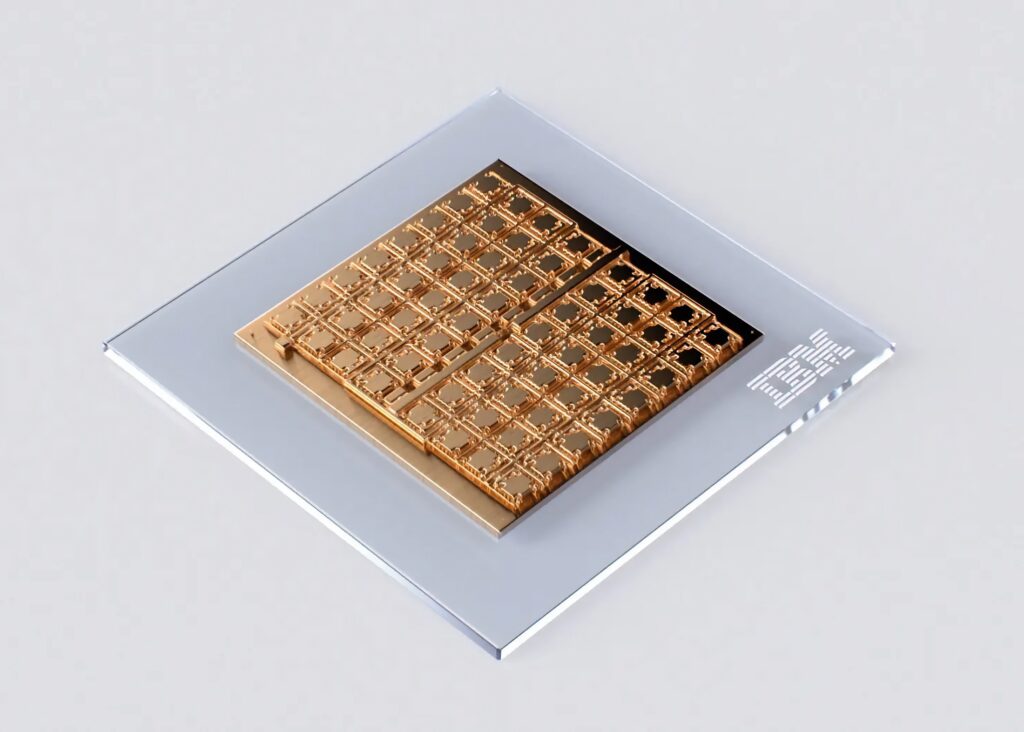IBM Research has announced a breakthrough analog AI chip that demonstrates remarkable efficiency and accuracy in performing complex calculations in deep neural networks (DNNs).
This breakthrough, announced in a recent paper in Nature Electronics, represents a major advance toward achieving high-performance AI computing with significant energy savings.
Traditional approaches to running deep neural networks on traditional digital computing architectures have limitations in terms of performance and energy efficiency. These digital systems require continuous data transfer between memory and processing units, slowing down calculations and reducing energy optimization.
To address these challenges, IBM Research leveraged analog AI principles that emulate the functionality of neural networks in the biological brain. This approach involves using nanoscale resistive memory devices, specifically phase change memory (PCM), to store synaptic weights.
PCM devices change conductance through electrical pulses, allowing continuous values of synaptic weights. This analog method performs calculations directly in memory, reducing the need for excessive data transfer and increasing efficiency.
The newly introduced chip is a state-of-the-art analog AI solution consisting of 64 analog in-memory computing cores.
Each core integrates a crossbar array of synaptic unit cells and a compact analog-to-digital converter to seamlessly transition between analog and digital domains. Additionally, digital processing units within each core manage nonlinear neuron activation functions and scaling operations. The chip also has a global digital processing unit and digital communication paths for interconnection.
The research team demonstrated the chip's superior performance by achieving 92.81% accuracy on the CIFAR-10 image dataset. This is an unprecedented level of accuracy for an analog AI chip.
The throughput per area, measured in giga-operations per second (GOPS), highlighted its superior computing efficiency compared to previous in-memory computing chips. This innovative chip's energy-efficient design and enhanced performance make it a milestone achievement in the field of AI hardware.
The unique architecture and superior capabilities of analog AI chips lay the foundation for a future where energy-efficient AI computations can be used in a variety of applications.
IBM Research's breakthrough marks a pivotal moment that will drive advances in AI-powered technology for years to come.
(Image credit: IBM Research)
See also: Azure and NVIDIA bring next-generation GPU acceleration for AI

Want to learn more about AI and big data from industry leaders? Check out the AI & Big Data Expos in Amsterdam, California, and London. This event coincides with Digital Transformation Week.
Learn about other upcoming enterprise technology events and webinars from TechForge here.


